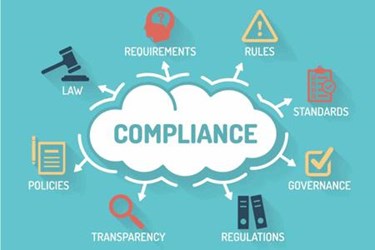The Benefits Of Outsourcing Clinical Regulatory Requirements

By Ed Miseta, Chief Editor, Clinical Leader

When I sat down to speak with Paul Bridges, Ph.D., corporate VP and Interim head of PAREXEL Consulting at the 2016 DIA Annual Meeting, we had recently heard the news of Great Britain exiting the European Union. Although the event would certainly impact businesses in countries around the world, Bridges seemed to take it completely in stride.
“We should certainly question how it will impact our companies,” he says. “But more importantly, what pharma needs to do is have a flexible plan in place to quickly react to the changing regulatory and drug development landscape. I believe those companies that are the most nimble will be the most successful, regardless of the change occurring around us.”
His point is really quite simple. There will always be changes occurring that can disrupt and erect obstacles to your drug development efforts. While we can’t stop them, we can certainly take advantage of the resources available from partners to better navigate them and mitigate their effects.
Regulatory Help Is Available
 Most companies have not embraced outsourcing in the regulatory space the same way many have done in clinical development. However, with more pharma companies streamlining their operations, regulatory is now a growing outsourcing opportunity. Bridges notes if a sponsor opts to outsource regulatory aspects of their trial, they want to know those aspects will be handled by knowledgeable and competent personnel. And it will be up to CROs to deliver that expertise.
Most companies have not embraced outsourcing in the regulatory space the same way many have done in clinical development. However, with more pharma companies streamlining their operations, regulatory is now a growing outsourcing opportunity. Bridges notes if a sponsor opts to outsource regulatory aspects of their trial, they want to know those aspects will be handled by knowledgeable and competent personnel. And it will be up to CROs to deliver that expertise.
“That’s a particularly hot topic within big pharma right now,” says Bridges. “I spend almost one meeting a week with a big pharma company discussing topics such as how a request for a proposal (RFP) should look or how to best complete an investigational new drug (IND) application. Outsourcing this aspect of the business certainly carries risk, but it also presents an opportunity for companies to mobilize regulatory assets for their portfolio in a way they couldn’t have done in the past.”
This regulatory outsourcing model is not just for large pharma companies. Once perfected, Bridges notes this model will also allow CROs to take those same assets to virtual, small, and mid-sized companies. A company with a single asset in development would then be able to tap into a large infrastructure of experts, rather than trying to hire those resources in-house.
Have The Right Methodology In Place
Bridges states having the right methodology in place is the key to success in every aspect of clinical trials. This is primarily due to today’s ever-changing clinical landscape. He believes CROs should have multidisciplinary teams in place that are trained in all phases of clinical development and can work across global hubs, tapping into local expertise when necessary. Assistance with regulatory submissions would be one such area of expertise. The old model many companies still use, with expertise highly decentralized, is fixed and can't react quickly to changes occurring in the real world.
One of the drivers of this methodology is new and innovative approval processes for oncology and orphan drugs. These new treatments can be granted an accelerated pathway to get drugs to market faster. Unfortunately, they also create increased levels of risk. Clinical teams have to be able to quickly react if an approval pathway doesn’t play out as expected. Those contingency plans can often be difficult to carry out without the proper support, and Bridges notes the challenge is especially pronounced in small companies. A virtual company with a single compound may not have the required expertise to navigate the accelerated pathway requirements.
“It is impossible for a small or virtual company to invest in the infrastructure and headcount necessary to take an asset to the global market,” notes Bridges. “The way to overcome that challenge is with a flexible and centralized team with a global network of boots on the ground. This is the help companies will increasingly look for their CRO to provide.”
FDA Approval Brings New Dilemmas
Even when a small company’s therapy is granted FDA approval, the challenges do not end. While the approval can create a revenue stream for the company, it may raise new questions. For example, should you increase your headcount or continue with a virtual outsourcing model?
Bridges has found many smaller companies opting to divert that new revenue stream into their next asset or acquisition. If the new product is innovative and lacks any past precedent, this again presents an opportunity for CROs to use their global regulatory networks to assist companies.
Prior to gaining this needed expertise through CROs, sponsor companies simply insourced those resources via contract employees, an approach that was neither a true outsourcing model nor a commitment to hire full-time staff. However, legislative changes in Europe and elsewhere are now making that approach more challenging. For example, if a contract worker is on the payroll for a specified period of time, regulations could outline under what conditions you must retain them.
“When insourcing an independent consultant, you’re paying for their time 24/7, regardless of whether or not you use their expertise,” says Bridges. “It may not give small companies the flexibility they need.”
Ensure Your CRO Has The Right Talent
Hiring the right personnel is essential to any company offering this capability. These individuals will be sitting at the table with your executives, providing strategy boards for compounds, defining risk, helping them determine if the compound will be approved and authorized by payers, and determining what it might look like 10 years from now. The interactions can be best described as drug development consulting, and that can be a very different mindset for many big pharma companies to adopt. Having the right expertise in place is one way to help executives overcome this concern.
“The people that we’re hiring, training, and retaining are folks who come from a management consulting background, have a science degree, and have spent time in development,” says Bridges. “They understand the regulatory landscape. They have sat on advisory boards and have been to FDA advisory committee meetings. This is expertise that I don’t think any company can generally get from a contract employee. Going forward, we will continue to see many of the strategic conversations with regulators and payers taking place in an outsourced framework, and I think that will be a positive trend for the industry.”
